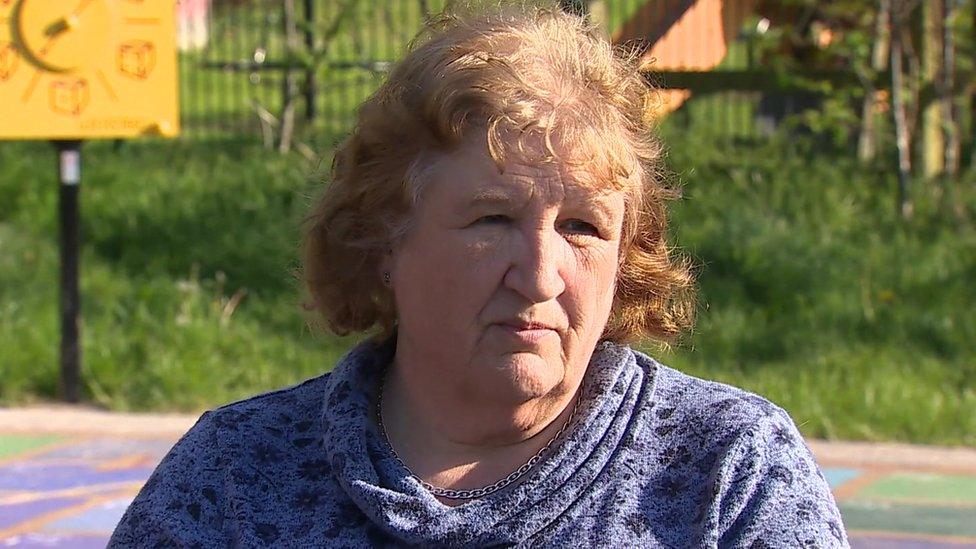Dementia: More support urged for 'hidden' carers
- Published
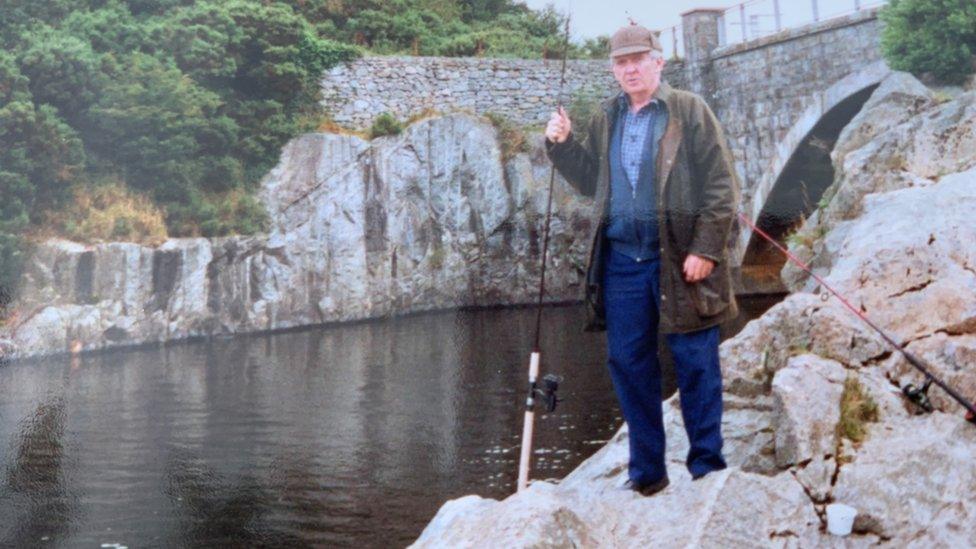
John Roberts' dementia diagnosis came as a shock to his family
"It was a shock," said Nia Roberts of the moment two years ago she was told her father had dementia.
John Roberts is now cared for - unpaid - by his three children, including Ms Roberts.
"We feel it is right for us to look after him, just like he looked after us. We are proud to do this," she said.
According to Carers Trust Wales, there are 370,000 unpaid carers in Wales like them, and it wants more done to support them.
"He was a healthy, happy and successful businessman with his own lorry company," said Ms Roberts, from Llan Ffestiniog, Gwynedd.
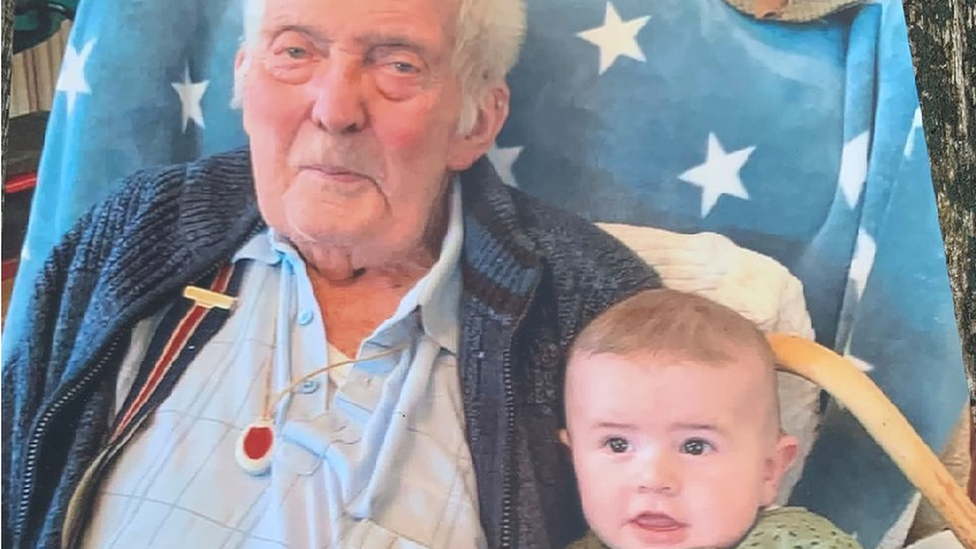
"He was driving and working until he was 85 and then came this diagnosis. He now depends on us for everything. As a family our lives are totally different now."
Her sister Sian said the help of carers was invaluable.
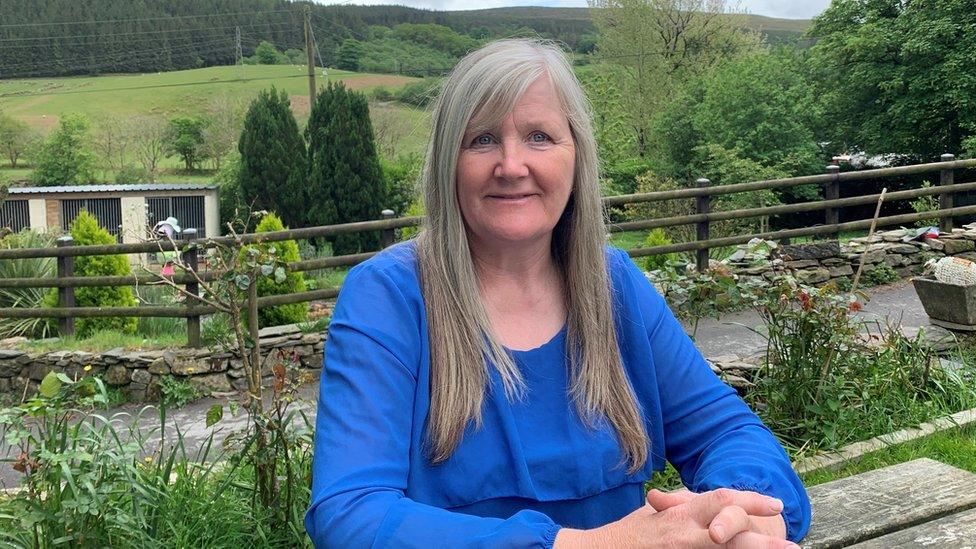
Nia Roberts is one of many "hidden" carers in Wales
"They have been superb. During the day we have carers four times, and once a week we have Marie Curie who come in and look after dad for us, and that make sure we can have one good night's sleep," she said.
"They are wonderful… like gold."
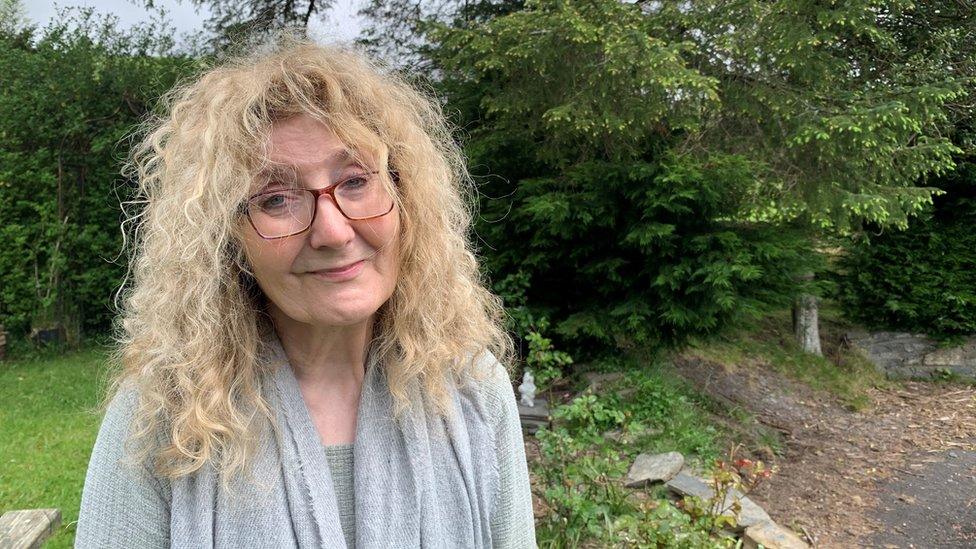
Sian Roberts says the professional carers who help the family look after their father are "like gold"
Recent research by Carers Trust Wales on unpaid carers recommended that health and social care workers should do more to recognise and identify unpaid carers so that they can access bespoke support services.
Almost half of carers of people living with dementia reported that their health had deteriorated during the pandemic.
There is concern that a lack of recognition of carers of people living with dementia, as well as the lack of a regular formal review of needs by health and social care workers, potentially leads to missing out on appropriate support until crisis point is reached.
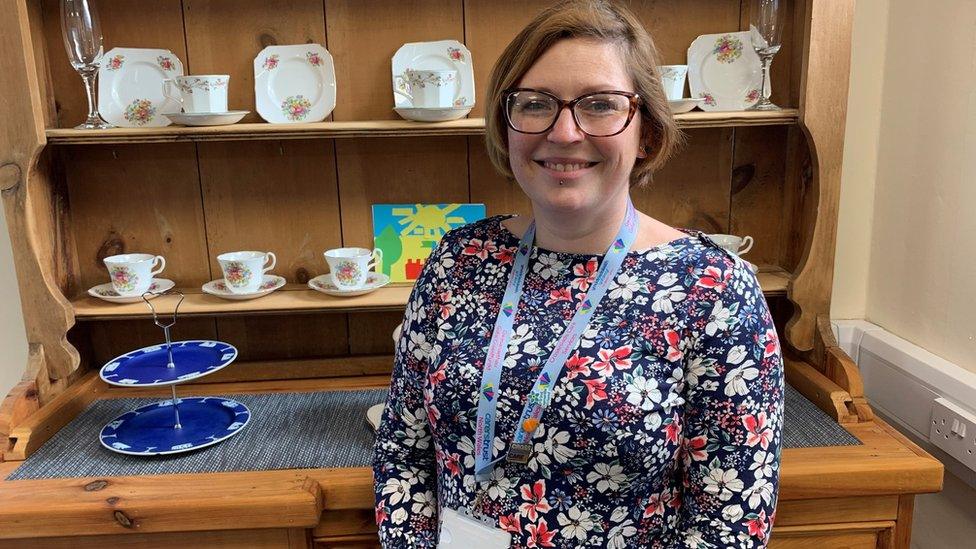
Ffion Davies says the pandemic has been especially hard for carers
Dementia coordinator for the Carers Trust Ffion Davies said: "We support people from when they are first diagnosed, right along their journey or path.
"The pandemic has been especially hard, and the rules preventing socialising, though necessary, were difficult for everybody but especially people with dementia."
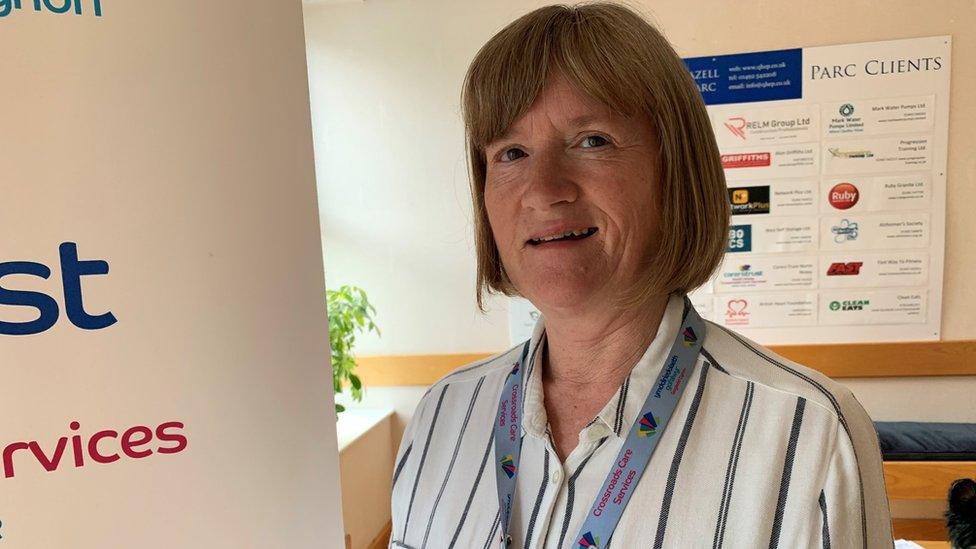
Gwenno Davies says families need to know how to adapt following a diagnosis
Gwenno Davies, the trust's dementia project leader, said it was vital that families have enough information.
"Many people these days have an early diagnosis of dementia and carry on working for a long time. It is important that the whole family know how to adapt to what is happening."

BORN DEAF, RAISED HEARING: Jonny Cotsen explores what it means to live in two different worlds
MARGINS TO MAINSTREAM: Michael Sheen introduces new writers revealing their truths

- Published19 April 2022

- Published4 April 2022
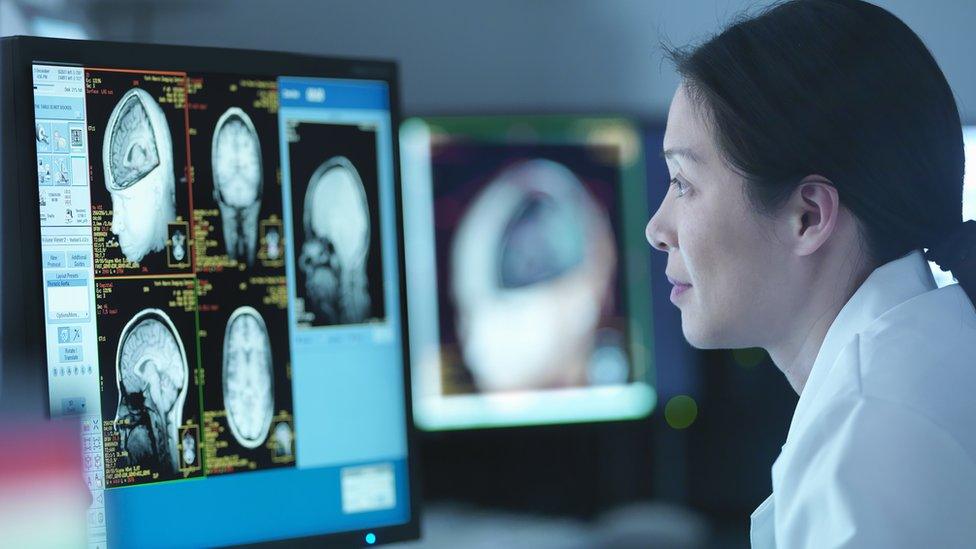
- Published27 April 2022
